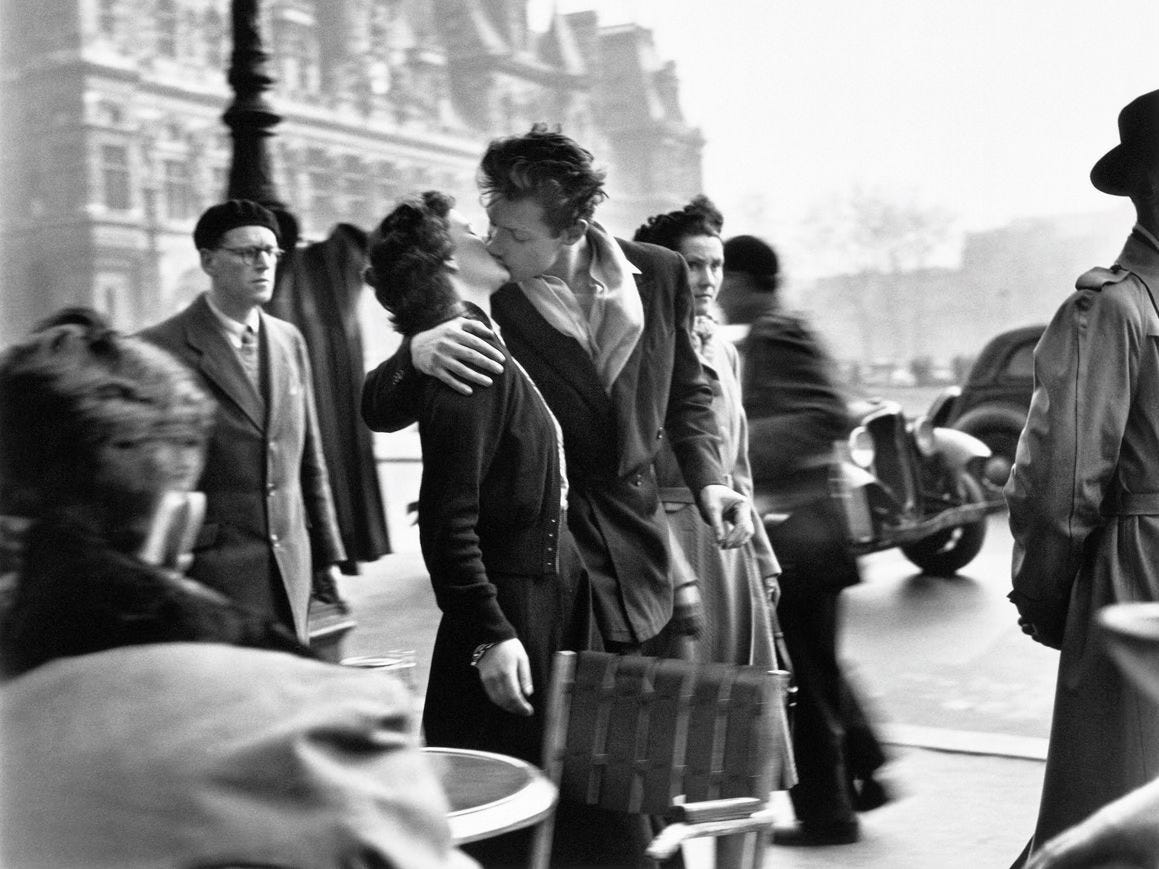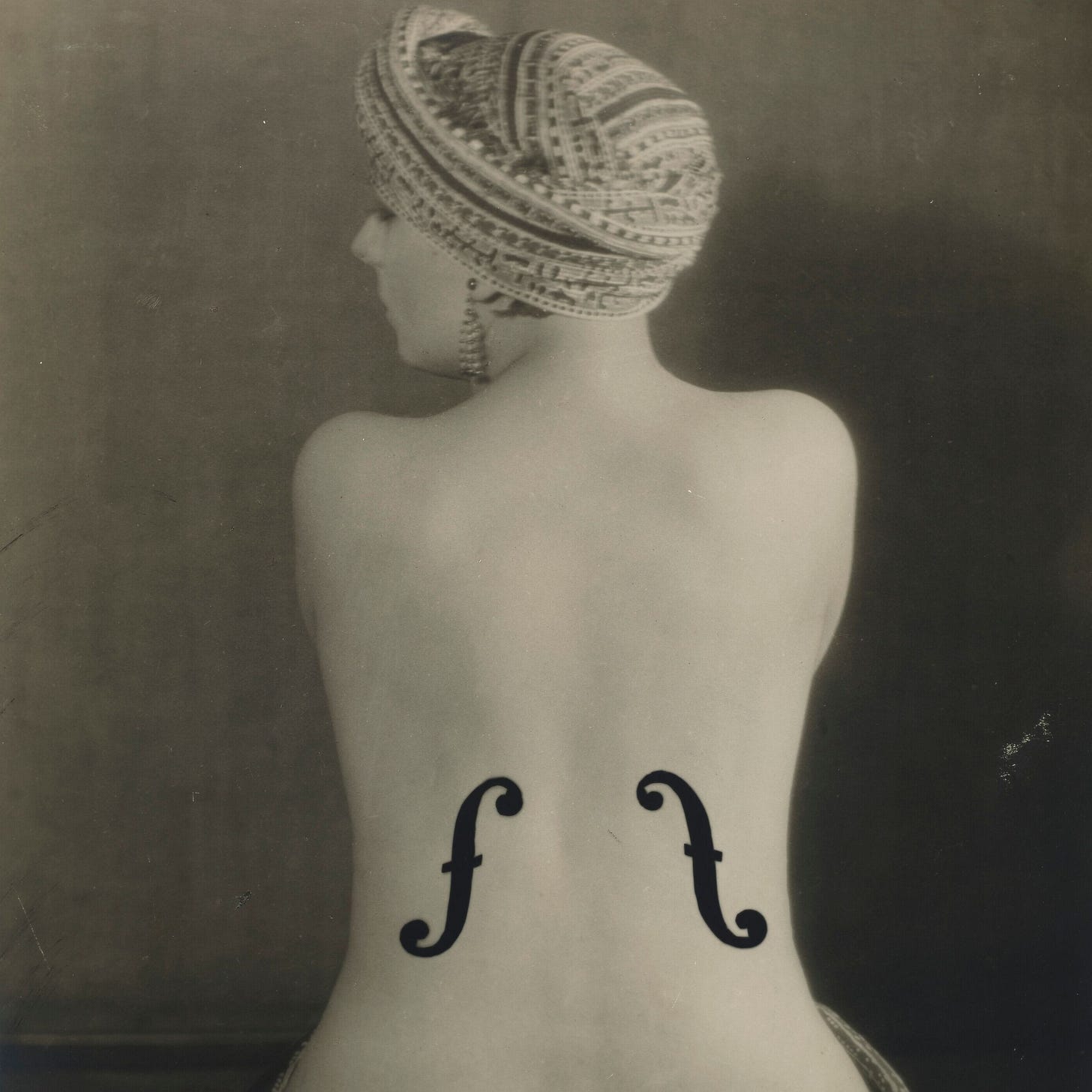Attraction: Hot, Wrong, and Inexplicably Right
Cartographies of desire – intuitive knowledge, instinct, error, and the architecture of longing

Before I ever loved someone, I wanted to study them. Not their résumé – their rhythm. Not their CV – their contradictions, the way they laughed when they were embarrassed, how they always looked away when receiving a compliment, the flicker in their gaze when they remembered who they were, the precise pause before they answered a question that asked too much. I didn’t want compatibility. I wanted fluency – in them. And attraction, I’ve learned, isn’t a preference. It’s a literacy. A way of reading what the self hasn’t yet spoken, a fluency in subtext, in scent, in sorrow barely concealed by a smirk. Most people think attraction is chemistry. Fewer think it’s a strategy. Almost no one admits: it might be knowledge.
What we call a “type” is often a kind of epistemology. I don’t mean someone who’s “tall, blue-eyed, and emotionally unavailable”, though God knows my twenties were a syllabus of that. I mean the quiet, involuntary, irrational insistence of the body that says: this one. That flinch of fascination. The peculiar quickening when someone’s presence rearranges the air around them like a weather system. This is not strategy. It is sense-making. And it’s been corrupted by dating advice columns and swipe-app choreography that treat attraction like a UX exercise, forgetting that desire was never meant to be optimised. It was meant to be intelligent…. chaotically so.
Evolutionary psychologists, in their blithe reductionism, love to frame attraction as mate selection optimised for reproductive success. Symmetry, waist-to-hip ratio, status, pheromones, testosterone markers, you name it. But I’ve never once looked at a man and thought, “He’d make a strong genetic contributor”, while watching him roll up his sleeves and reveal forearms that looked like they could snap your illusions in half. Attraction doesn’t read Darwin. It writes in dialect. Sometimes we fall for someone because they smell like safety. Sometimes because they resemble our ghosts. And sometimes because they challenge the very moral scaffolding we have spent decades carefully constructing.
There is an intelligence in what we ache for. A logic that doesn’t speak English. Sometimes it stutters in French or mutters in music or appears in the form of a person who irritates us just enough to keep us honest. The Greeks knew this long before Tinder. Sirens weren’t seductive because they were sweet, they were terrifying because they knew your name. Real attraction is disruptive. It shakes the scaffolding. When we speak of being “drawn to someone”, we describe gravity, not taste. It is often not what we want, but what we’re missing, what might complete us, or unmake us trying.
I’ve unravelled over people I had no good reason to want. There was the actor who smoke too much and barely spoke but listened like someone who had survived a fire and never stopped hearing it crackle. There was the man who never once said “I miss you” but sent lunar metaphors instead, always a waxing or a waning, never direct. And then – twice – two married men: the first a brief, reckless blur; the second, quite possibly the most insufferably self-impressed man I’ve ever encountered. These weren’t decisions made in light. But they were precise in their excavation. They unearthed layers I hadn’t known were buried, places no analysis had touched, only instinct had charted. Attraction does not confirm who we are. It dismantles who we pretend to be.
And then there is aesthetic intelligence, which everyone is now terrified to talk about unless it’s under the banner of “vibes”. But aesthetic instinct is real – and primal. We are drawn to what reflects or refracts some hidden self. It isn’t about beauty in the mass-produced, airbrushed, pH-balanced sense. It’s the face that jolts you into memory. The voice that reminds you of a forgotten language. You know this if you have ever looked at someone and felt homesick for a life you never lived. Attraction is recognition, yes, but also projection. It’s a trick mirror that shows you both what you lack and what you might become.

We live in an era trying desperately to bureaucratise desire. The swipe economy has mistaken abundance for accuracy, and self-optimisation for intimacy. But desire has never been a good capitalist. It is inefficient, unscalable, rude. It lingers where it shouldn’t and leaves where it should have stayed. True attraction resists productisation. It’s not a preference you can tick in a profile. It’s a psychic event. A little apocalypse that rearranges your inner furniture, sometimes permanently.
Rilke once wrote that love is not about merging, but about two solitudes protecting, bordering, and saluting one another. It begins, of course, with the body – the quick glance, the magnetic pull – but if it survives, it deepens not by conquest but by recognition. We don’t just want to possess the other; we want to be changed in their presence. And yet, many of us confuse the initial voltage for the whole current. We chase the spark but avoid the burn. The real genius of attraction lies in its evolution… from sensory jolt to existential mirror. Not everyone graduates. Many remain addicted to the dopamine hit of newness. But for those who stay, who linger beyond the blush, attraction becomes an interrogation of the self: what do I see in you that I couldn’t face in me?
Once, I was attracted to a man solely because he read Anna Karenina aloud to me. I didn’t even like his voice. It was nasal and performative. But something about the way he mourned Anna – genuinely, as if he had met her and failed her – made me believe he was emotionally literate. He wasn’t. He was manipulative, passively cruel, the kind who says “I’m just being honest” right after slicing you. But for a time, I mistook that flicker of shared sensitivity for depth. It wasn’t that I was fooled, it was that my hunger got there first. Attraction, I’ve learned, often precedes discernment. And sometimes, it teaches it.
This is the part we rarely admit: what attracts us isn’t always what’s good for us. In fact, it rarely is. But that doesn’t make it stupid. It makes it revealing. Some of our deepest recognitions come cloaked in error. We don’t just “have a type”. We have a history, and it echoes. We replay it in bodies, gestures, voices. And while that sounds bleak… it’s not! Because in that pattern lies the possibility of revision. Attraction is a trail of breadcrumbs into the unconscious. Follow it long enough, and you might learn who you have been trying to be all along.
And yet we are instructed to distrust it. To override it. To be “wise” and “intentional” and “securely attached”. All noble aspirations. But tell me, how many of your most transformative moments began with wisdom? Most of mine began with impulse, with misrecognition, with desire that outran my sense. We don’t grow from our good decisions. We grow from our ruptures. Attraction, at its most honest, is rupture. It disrupts your narratives. It humbles your certainty. It asks you to reconsider who you are when nobody is watching.
Sometimes I think attraction is the glitch in our personal algorithm, the moment when everything we thought we had evolved past rises from the grave wearing perfume we used to love. It is not regressive but diagnostic. You think you are over a pattern until someone walks into the room and your entire nervous system reboots itself in their direction. It’s humbling, embarrassing, almost hilarious how someone’s posture, or the way they compulsively touch the scar on their wrist when they try not to lie, can undo all your carefully cultivated insight. We talk so much about becoming “securely attached” that we have forgotten: the point of self-awareness is not to become invulnerable to desire, but to be pierced by it in new places.
Attraction often reintroduces us to our own unfinished business. You say you’re done with emotionally unavailable people, then you fall for the one who texts like a Sufi poet but disappears like a magician. You swear off chaos, then find yourself reading meaning into every silence from someone who only calls after midnight. These moments don’t make you foolish, they make you legible. Because if attraction is a glitch, it’s the kind that reveals a higher-order pattern. Not a mistake in logic, but a deeper kind of literacy, the kind that doesn’t flatter the ego, but points to the places we still live in metaphor, not clarity. That, I think, is what makes attraction so terrifying… it’s not just who we want, but what we are still trying to resolve, and who we keep hiring, unconsciously, to help us do it.
Of course, not every flicker deserves pursuit. Not every pulse of longing is a prophecy. But the point isn’t to indulge - it’s to attend! To learn the dialect of your own ache. To trace the silhouette of what makes you feel most alive, even if it terrifies you. Attraction, when treated as intelligence, becomes a kind of cartography – not of the other person, but of the interior terrain you didn’t know had coordinates. A soul map sketched in glances, gestures, and misread text messages.
There is no punchline. No manifesto. No nine-point plan to turn your chemistry into commitment. The intelligence of attraction isn’t there to deliver you a happy ending, but it is there to remind you that endings were never the point. This is not a journey of mastery. It’s a process of revelation. We are not here to curate a portfolio of perfect lovers. We are here to be startled by who we become in their presence. And if we are lucky if we are radically, foolishly alive, we might even let ourselves be read. Not accurately. Not completely. But unmistakably.
With instinct first, and explanation later, drawn, not chosen, from the department of bad ideas and beautiful consequences, in recognition of what undoes and remakes us, and in pursuit of what cannot be explained, only felt,
Tamara





Tamara, this is incandescent! Not only for its lyricism, but for the rare courage of its lens, one that doesn’t sanitize attraction into strategy, but studies it like an ancient language, half-lost, half-inherited. You’ve chosen to write from the inside out, treating desire not as a tidy algorithm, but as a feverish intelligence. Love it! Wild, disruptive, and impossibly precise. That choice alone deserves praise, because so few dare to tell this story from within the ache.
Your essay reminds me of Clarice Lispector, who once wrote, “I only achieve simplicity with enormous effort”. That’s what this feels like: an earned simplicity—fierce, lush, and rigorously honest. Like her, you aren’t satisfied with the “what” of a thing. You insist on the “why,” and then the “why beneath the why”. To read your words is to sit inside a cathedral of mirrors, each sentence a reflection of what we suspect and fear and long for in quiet.
Your framing of attraction as “a kind of literacy” is revelatory. We’re so used to treating chemistry like coincidence—a spark, a swipe, a punchline. But you elevate it to something sacred and epistemological: a grammar of the unsaid. It reminds me of how Leonard Cohen sang of love not as resolution, but as fracture: “There is a crack in everything / That’s how the light gets in”.
You’ve given us the map of that crack. You’ve made it holy.
And how rare it is to hear someone say, without apology, that desire can be diagnostic. That our types are often echo chambers of unfinished business. You reframe our supposed “mistakes” not as failings, but as revelatory artifacts. It’s deeply compassionate, and frankly, so needed, to suggest that even poor choices can be precise in their excavation.
Reading this was like reading someone who has loved with their whole nervous system. Someone who knows that real intimacy is not efficient, not scalable, and certainly not safe, but honest. Disarmingly so.
Thank you for trusting us with this vantage point, from the edge, where the most meaningful truths tend to live.
How? How do you do this? Every f@cking time. Excuse my expression. Born to Irish parents in Northern England. I never stood a chance. Swearing is second nature. How am I supposed to get anything done now for the rest of the evening. So much here is a wrecking ball wrapped in velvet that has me going wtf?? The resonance is off the scale and creating harmonic waves in my system.
I just experienced the most brutal end of a relationship and all of this that you present here I know in my bones. I am wearing it as a coat. In ceremony.
This is scarily perceptive. I am not going to quote your own lines to you. There are too many which are quotable. This doesn't have bits of gold in it..it is paved with the stuff.
I am going to walk in the woods now. To land this. It is shatteringly beautiful.